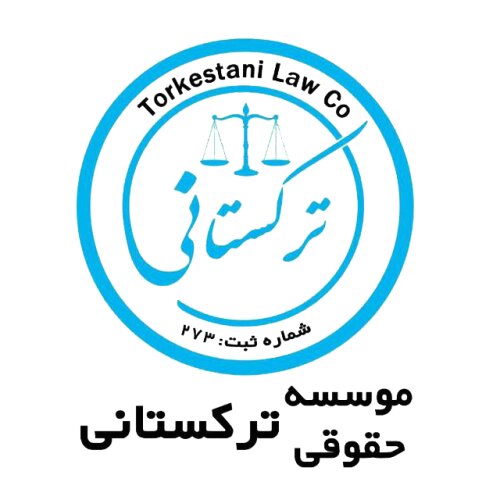Best Child Visitation Lawyers in Tehran
Share your needs with us, get contacted by law firms.
Free. Takes 2 min.
Free Guide to Hiring a Family Lawyer
List of the best lawyers in Tehran, Iran
About Child Visitation Law in Tehran, Iran
Child visitation law in Tehran, Iran, is governed by the Islamic Republic's civil code and family law. The primary focus of these laws is to ensure the welfare and best interests of the child, while considering the rights and obligations of the parents. Child visitation, often part of custody agreements, allows the non-custodial parent to maintain a relationship with their child. In these cases, judges seek to balance parental rights with the child's best interests and safety, especially in contentious or complex cases.
Why You May Need a Lawyer
There are several situations when seeking legal advice may be beneficial in matters of child visitation:
- During a contentious divorce or separation where both parties cannot agree on visitation rights.
- If the custodial parent denies or restricts visitation rights without justified reasons.
- When amendments to existing visitation arrangements are needed due to changes in circumstances.
- In cases where you suspect your child’s safety and well-being is compromised during visits.
- To understand your rights and obligations under local Iranian law.
Local Laws Overview
In Iran, family law dictates the processes and decisions related to child custody and visitation. Here are some key aspects:
- Custody decisions are made based on the children's best interests, with a preference for the mother in young children, unless otherwise deemed unsuitable.
- Visitation rights are typically granted to the non-custodial parent, unless it is determined that such visits would harm the child.
- The court generally encourages both parents' involvement in the child's upbringing unless there are compelling reasons not to do so.
- Visitation schedules can be flexible or fixed, depending on the family’s situation and needs.
- Courts may intervene to modify visitation agreements if either parent violates the terms or if the child's best interests are not being served.
Frequently Asked Questions
What is the general process for obtaining visitation rights?
To obtain visitation rights, non-custodial parents usually file a petition in family court. The court then assesses the case, focusing on the child's best interests before making a decision.
Can visitation rights be denied?
Yes, visitation rights can be denied by the court if it believes that visitation would pose a risk to the child's well-being or safety.
How are visitation schedules determined?
Visitation schedules are determined based on the family's circumstances, considering factors like parents' work schedules, the child's schooling, and the need for stability in the child's life.
What happens if the custodial parent refuses visitation?
If visitation is unfairly denied, the affected parent can file a complaint with the family court, which will investigate and may adjust visitation arrangements.
Can visitation rights be modified?
Yes, visitation rights can be modified if there has been a substantial change in circumstances or if it's in the best interest of the child.
How can a parent ensure compliance with visitation agreements?
Having a court-issued visitation order provides a legal framework to ensure compliance. Courts can enforce this through legal penalties if necessary.
What should I do if I suspect abuse during visitation?
Immediately report any suspicions to the authorities and consult a lawyer to file for an emergency modification of the visitation terms.
Can grandparents or other relatives obtain visitation rights?
In some cases, courts may grant visitation rights to grandparents or other relatives if it's deemed beneficial for the child.
What legal rights do I have if I live outside of Iran?
The cross-border nature of custody and visitation can be complex; consulting with a lawyer experienced in international family law is advisable.
How can I prepare for a visitation rights hearing?
Gather necessary documentation, records of your relationship with the child, and evidence of your parenting abilities to present in court.
Additional Resources
For further assistance, individuals can turn to various resources in Tehran, such as:
- The Ministry of Justice - Family Court Division
- Legal aid clinics offering services for child custody and visitation matters
- Non-profit organizations focused on family welfare and child rights
- The Iranian Bar Association for referrals to family law specialists
Next Steps
If you need legal assistance regarding child visitation in Tehran, Iran, consider the following steps:
- Consult with a family law attorney to understand your rights and options.
- Gather all relevant documents related to custody and visitation.
- Attend all court hearings and follow the legal procedures as advised by your lawyer.
- Keep documentation of all interactions and communications concerning your child and visitation disputes.
- Seek emotional support from family, friends, or professional counselors during the process.
Lawzana helps you find the best lawyers and law firms in Tehran through a curated and pre-screened list of qualified legal professionals. Our platform offers rankings and detailed profiles of attorneys and law firms, allowing you to compare based on practice areas, including Child Visitation, experience, and client feedback.
Each profile includes a description of the firm's areas of practice, client reviews, team members and partners, year of establishment, spoken languages, office locations, contact information, social media presence, and any published articles or resources. Most firms on our platform speak English and are experienced in both local and international legal matters.
Get a quote from top-rated law firms in Tehran, Iran — quickly, securely, and without unnecessary hassle.
Disclaimer:
The information provided on this page is for general informational purposes only and does not constitute legal advice. While we strive to ensure the accuracy and relevance of the content, legal information may change over time, and interpretations of the law can vary. You should always consult with a qualified legal professional for advice specific to your situation.
We disclaim all liability for actions taken or not taken based on the content of this page. If you believe any information is incorrect or outdated, please contact us, and we will review and update it where appropriate.

















